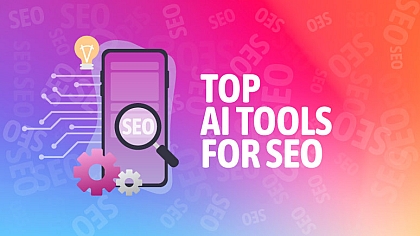
Can AI Change The Insurance Landscape?
AI has had an impact on almost every industry, but there have long been discussions about how revolutionary of an impact the technology can have. The insurance landscape is rapidly changing and transforming, largely driven by user and customer experience. Unlike other industries, the insurance industry has been quite quick in the adoption of AI technology, however, it is how the industry can move forward with making it more transformative for users and insurers alike.
It is believed that the insurance industry has one of the highest potential in terms of value that can be garnered from AI technology, with the prediction of adding $1.1 trillion to the industry. But, how exactly can AI change the insurance landscape? Let’s take a closer look.
What Potential Does AI Have For Insurers?
There has been an unprecedented uptake of AI across a wide range of sectors and industries. With digitalisation speeding ahead, the amount of data which can be generated from such widespread use is staggering. As insurance is a largely data-driven industry, which relies on constant use to improve quotes and products, it isn’t an industry which is new to AI, or other machine learning and data analysis platforms. This is what makes it one of the most profitable industries in terms of AI adoption.
Personalised Products
Rather than using groups of customers on which to base products and pricing, with AI, insurance companies and brokers are now able to offer better products and pricing which is targeted towards individual products. By using AI to analyse personal data, behaviour patterns and customer preferences, providers and brokers can offer customised and personalised insurance offerings and recommendations for policies. Rather than waiting days, or in some cases weeks, for policy cases to be put together by hand, insurers and brokers can often get paperwork put together in seconds with AI.
AI and machine learning can be used within insurance to also assess individual risk profiles for those looking for insurance quotes. Then, personalised insurance products can be provided and costs or pricing is gathered with the help of AI, which can also evaluate the likelihood of claims being made on that specific insurance product.
Improved Customer Experience
The insurance industry has a long history of not always providing the best customer experience or journey. With frustrating user interfaces on websites, long queues to speak to an advisor or annoyance with claims processing and handling, there are many ways in which human interaction can interfere with a customer’s insurance experience. But, many insurers are finding ways that AI can help to transform the claims process and reduce stress all around through improved web development.
AI voice systems are seen to be better equipped than traditional frustrating voice recognition systems when it comes to responding to queries and providing responses to complex challenges. As time goes on, AI will get better at replying and understanding queries, as it learns more about unusual or unique circumstances.
As well as this, AI chatbots are growing in popularity for many businesses that want to be able to help customers as quickly as possible, without the need for them to sit in long queues online or over the phone. As AI can interpret and understand the intent behind many common customer questions, rather than just responding to certain keywords or phrases, it can deliver better quality and more relevant responses.
Better Communication
Many insurance providers and brokers are looking to use AI to improve the way that they communicate with their customers. With changes in behaviour and lifestyle being a common reason why customers get in touch regarding their policies, AI can be used to provide more relevant insurance products or deliver clearer messaging for information on policies.
This could range from a customer enquiring about car insurance following the purchase of a new car, or a business owner looking for more information about executive income protection insurance, and each instance then offers an opportunity for AI to inform or sell different insurance products.
AI facilitates the ability to manage a range of customers and clients and their experience across the different channels they use, whether this is online or mobile interactions. Insurers that offer omnichannel approaches can provide a more consistent level of customer service with AI, using information that has already been shared.














